
Editorial

Volume 12 Editorial
At the time of publishing the last issue of Drama Research in April 2020 (Volume 11.1) the national ‘lockdown’ during the coronavirus epidemic had just begun. Who would have thought that the writing of the editorial in this issue, one year later, would also take place in the context of the continuing ‘lockdown’? Yet it does.

Volume 12 Editorial
At the time of publishing the last issue of Drama Research in April 2020 (Volume 11.1) the national ‘lockdown’ during the coronavirus epidemic had just begun. Who would have thought that the writing of the editorial in this issue, one year later, would also take place in the context of the continuing ‘lockdown’? Yet it does.
Articles

Teaching complex, abstract concepts through embodied learning: a drama-based approach
The aim of this research is to demonstrate the benefits of teaching complex, abstract concepts through a drama-based approach.

What are the possibilities of the Pritney method in early childhood education for stimulating curiosity, emotions and collaboration through the combination of opera and puppetry?
This article will focus on the possibilities of the ‘Pritney method’ used for stimulating curiosity, emotions and collaboration in Early Childhood Education and Care studies (ECEC); especially through the combination of puppetry and opera, a combination which is considered to be valuable in creating aesthetic and pedagogical moments.

Drama in Education as a tool for enhancing self-efficacy in Primary School children
The action research study presented in this article refers to the connection of drama-in-education and children’s self-efficacy in primary school in Greece

Toward Accessible Actor Training
Sorry – you need to log in to view this page! You can join National Drama by clicking here. This will entitle you to free copies of Drama magazine, and also grant you access to Drama Research, our international journal of drama in education. Thank you!

Teaching complex, abstract concepts through embodied learning: a drama-based approach
The aim of this research is to demonstrate the benefits of teaching complex, abstract concepts through a drama-based approach.

What are the possibilities of the Pritney method in early childhood education for stimulating curiosity, emotions and collaboration through the combination of opera and puppetry?
This article will focus on the possibilities of the ‘Pritney method’ used for stimulating curiosity, emotions and collaboration in Early Childhood Education and Care studies (ECEC); especially through the combination of puppetry and opera, a combination which is considered to be valuable in creating aesthetic and pedagogical moments.

Drama in Education as a tool for enhancing self-efficacy in Primary School children
The action research study presented in this article refers to the connection of drama-in-education and children’s self-efficacy in primary school in Greece

Toward Accessible Actor Training
Sorry – you need to log in to view this page! You can join National Drama by clicking here. This will entitle you to free copies of Drama magazine, and also grant you access to Drama Research, our international journal of drama in education. Thank you!
Emergent Researcher

A way of Delivering a Drama Course – Shakespeare’s Hamlet: A Case Study
Teachers of literature, especially drama, most often face the challenge of making their presentation and discussion of a given play accessible to a large proportion of students attending the drama course.

A way of Delivering a Drama Course – Shakespeare’s Hamlet: A Case Study
Teachers of literature, especially drama, most often face the challenge of making their presentation and discussion of a given play accessible to a large proportion of students attending the drama course.
Book Reviews
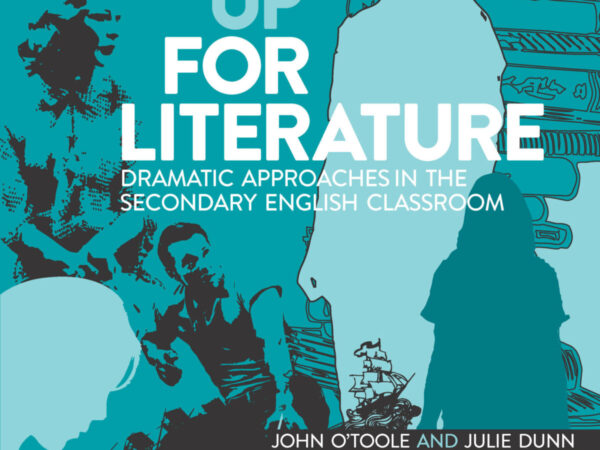
Stand Up for Literature Dramatic Approaches in the Secondary English Classroom
Stand Up For Literature: Dramatic Approaches in the Secondary English Classroom is a contemporary guide for teachers, offering interactive and embodied ways to bring literary and spoken texts to life.
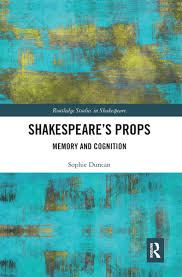
Shakespeare’s Props: Memory and Cognition
Cognitive approaches to drama have enriched our understanding of Early Modern playtexts, acting and spectatorship. This monograph is the first full-length study of Shakespeare’s props and their cognitive impact.
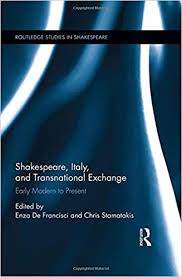
Shakespeare, Italy, and Transnational Exchange
This interdisciplinary, transhistorical collection brings together international scholars from English literature, Italian studies, performance history, and comparative literature to offer new perspectives on the vibrant engagements between Shakespeare and Italian theatre, literary culture, and politics, from the sixteenth to the twenty-first century.
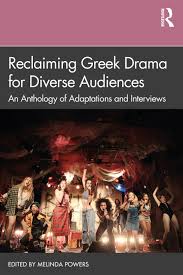
Reclaiming Greek Drama for Diverse Audiences
Reclaiming Greek Drama for Diverse Audiences features the work of Native-American, African-American, Asian-American, Latinx, and LGBTQ theatre artists who engage with social justice issues in seven adaptations of Sophocles’ Antigone, Euripides’ Trojan Women, Hippolytus, Bacchae, Alcestis, and Aristophanes’ Frogs, as well as a work inspired by the myth of the Fates.
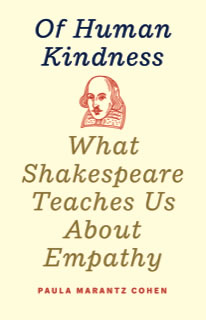
On Human Kindness: What Shakespeare teaches us about Empathy
While discussing Shakespeare’s plays in her university classroom, Paula Marantz Cohen discovered that they unlocked a surprising sense of compassion in both herself and her students. In this short and illuminating book, she shows how Shakespeare’s genius lay in his ability to arouse empathy, even when his characters exist in alien contexts and behave in reprehensible ways.
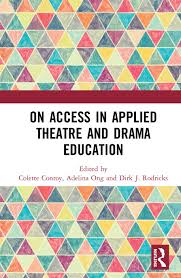
On Access in Applied Theatre and Drama Education
This book explores and interrogates access and diversity in applied theatre and drama education. Access is persistently framed as a strategy to share power and to extend equality, but in the context of current and recent power struggles, it is also seen as a discourse that reinforces marginalisation and exclusion.

Stand Up for Literature Dramatic Approaches in the Secondary English Classroom
Stand Up For Literature: Dramatic Approaches in the Secondary English Classroom is a contemporary guide for teachers, offering interactive and embodied ways to bring literary and spoken texts to life.

Shakespeare’s Props: Memory and Cognition
Cognitive approaches to drama have enriched our understanding of Early Modern playtexts, acting and spectatorship. This monograph is the first full-length study of Shakespeare’s props and their cognitive impact.

Shakespeare, Italy, and Transnational Exchange
This interdisciplinary, transhistorical collection brings together international scholars from English literature, Italian studies, performance history, and comparative literature to offer new perspectives on the vibrant engagements between Shakespeare and Italian theatre, literary culture, and politics, from the sixteenth to the twenty-first century.

Reclaiming Greek Drama for Diverse Audiences
Reclaiming Greek Drama for Diverse Audiences features the work of Native-American, African-American, Asian-American, Latinx, and LGBTQ theatre artists who engage with social justice issues in seven adaptations of Sophocles’ Antigone, Euripides’ Trojan Women, Hippolytus, Bacchae, Alcestis, and Aristophanes’ Frogs, as well as a work inspired by the myth of the Fates.

On Human Kindness: What Shakespeare teaches us about Empathy
While discussing Shakespeare’s plays in her university classroom, Paula Marantz Cohen discovered that they unlocked a surprising sense of compassion in both herself and her students. In this short and illuminating book, she shows how Shakespeare’s genius lay in his ability to arouse empathy, even when his characters exist in alien contexts and behave in reprehensible ways.

On Access in Applied Theatre and Drama Education
This book explores and interrogates access and diversity in applied theatre and drama education. Access is persistently framed as a strategy to share power and to extend equality, but in the context of current and recent power struggles, it is also seen as a discourse that reinforces marginalisation and exclusion.
Editorial Board
Notes on Authors

Volume 12 Notes on Authors
Ellen Armstrong is a PhD researcher at Guildford School of Acting, University of Surrey, Guildford.

Volume 12 Notes on Authors
Ellen Armstrong is a PhD researcher at Guildford School of Acting, University of Surrey, Guildford.
Table of Contents

